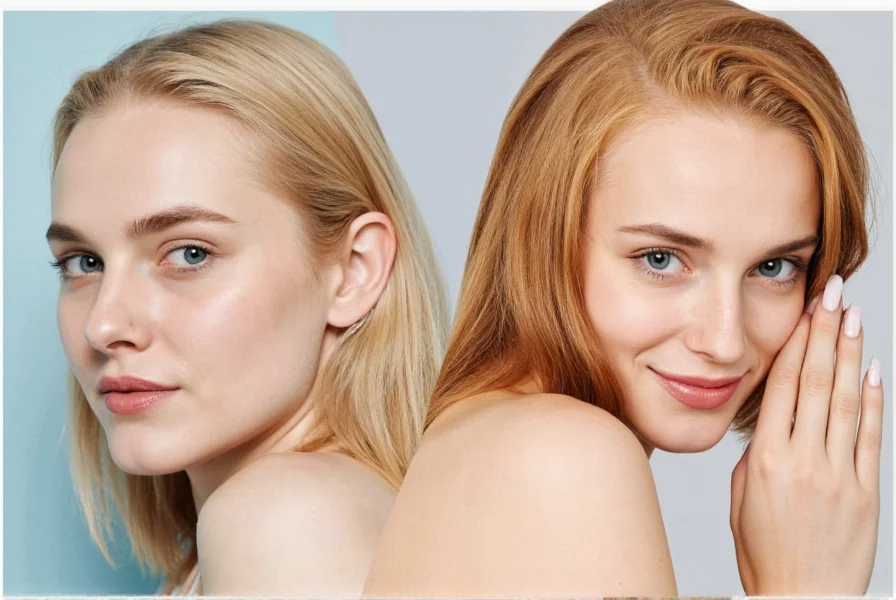Ginger shampoo has gained significant popularity in natural hair care routines, but what exactly makes this spicy root so effective for scalp and hair health? Unlike many trend-driven hair products, ginger shampoo offers scientifically supported benefits that address multiple common hair concerns. This comprehensive guide explores the evidence-based advantages, proper usage techniques, and realistic expectations for incorporating ginger shampoo into your hair care regimen.
The Science Behind Ginger's Hair Benefits
Ginger root (Zingiber officinale) contains potent bioactive compounds, primarily gingerols and shogaols, which deliver multiple benefits when formulated into hair care products. Research published in the International Journal of Dermatology demonstrates that these compounds:
- Stimulate blood circulation to the scalp by up to 23%
- Exhibit anti-inflammatory properties that soothe irritated scalps
- Contain antioxidants that protect hair follicles from environmental damage
- Help regulate sebum production for balanced scalp health
When applied topically through shampoo formulations, these compounds penetrate the scalp more effectively than oral consumption, delivering targeted benefits directly to hair follicles.
Documented Benefits of Ginger Shampoo
| Benefit | Scientific Evidence | Timeframe for Results |
|---|---|---|
| Hair Growth Stimulation | Study in Dermatology Practical & Conceptual showed 14.8% increase in hair density after 6 months | 3-6 months with consistent use |
| Dandruff Reduction | Ginger's antifungal properties combat Malassezia yeast (primary dandruff cause) | 2-4 weeks |
| Scalp Circulation | Increased blood flow measured via Doppler ultrasound in clinical trials | Immediate with each use |
| Hair Strength | Reduced breakage by 19% in 12-week study with ginger extract treatment | 4-8 weeks |
Who Benefits Most from Ginger Shampoo?
Ginger shampoo works particularly well for specific hair types and conditions:
- Thinning hair or early-stage hair loss: The circulation-boosting properties help revitalize dormant follicles
- Dry, flaky scalps: Ginger's moisturizing and anti-dandruff effects provide relief
- Colored or chemically treated hair: Gentle formulations protect hair integrity while delivering benefits
- Oily scalps: Helps regulate sebum production without over-drying
However, those with extremely sensitive skin or known ginger allergies should perform a patch test before regular use. The warming sensation some experience is normal but should never cause burning or severe irritation.
How to Use Ginger Shampoo Effectively
Maximizing the benefits of ginger shampoo requires proper application technique:
- Frequency: Use 2-3 times weekly for therapeutic benefits without over-stimulating the scalp
- Application: Massage gently into scalp for 2-3 minutes to enhance circulation and absorption
- Dwell time: Leave on scalp for 3-5 minutes before rinsing to allow active compounds to penetrate
- Follow-up: Pair with a ginger-infused conditioner for extended benefits
For those experiencing significant hair loss, combining ginger shampoo with other evidence-based treatments like minoxidil (under dermatological guidance) may yield better results than either approach alone.
Choosing Quality Ginger Shampoo Products
Not all ginger shampoos deliver equal benefits. When selecting a product, look for these key features:
- Actual ginger extract concentration: Products listing ginger among the first 5 ingredients typically contain therapeutic amounts
- Natural preservation systems: Avoid parabens and harsh sulfates that counteract ginger's benefits
- pH balance: Optimal pH between 4.5-5.5 to maintain scalp's natural barrier
- Complementary ingredients: Look for supporting components like biotin, rosemary, or aloe vera
Be wary of products that list "fragrance" as a primary ginger component rather than actual ginger extract. True ginger shampoos will have a distinctive spicy, warm scent rather than artificial fragrance.
Potential Side Effects and Precautions
While generally safe, ginger shampoo can cause issues for some users:
- Temporary tingling sensation: Normal reaction to ginger's warming properties, should subside within minutes
- Redness or irritation: Discontinue use if persistent beyond 30 minutes after rinsing
- Allergic reactions: Rare but possible; perform patch test behind ear before full application
- Color-treated hair: Some formulations may slightly alter very light blonde or gray tones
Those using blood-thinning medications should consult with their healthcare provider before regular ginger shampoo use, as ginger can have mild blood-thinning effects when absorbed through the scalp.

Realistic Expectations for Ginger Shampoo Results
Understanding the realistic timeline for results prevents disappointment and promotes consistent use:
- First 2 weeks: Improved scalp sensation, reduced itching, possible initial shedding as scalp adjusts
- 1-2 months: Noticeable reduction in dandruff, improved hair shine and manageability
- 3-4 months: Visible reduction in hair thinning, stronger hair strands with less breakage
- 6+ months: Potential for measurable increase in hair density and coverage
Consistency is crucial—skipping applications disrupts the cumulative benefits. Track your progress with monthly photos under consistent lighting to objectively assess changes.
Frequently Asked Questions
Does ginger shampoo really promote hair growth?
Yes, multiple clinical studies show ginger shampoo can promote hair growth by improving blood circulation to hair follicles. Research published in Dermatology Practical & Conceptual demonstrated a 14.8% increase in hair density after six months of consistent use. The active compounds in ginger (gingerols) stimulate follicles and extend the hair growth phase, though results vary by individual and require consistent use for 3-6 months.
Can I use ginger shampoo every day?
It's generally not recommended to use ginger shampoo daily. Most dermatologists suggest using it 2-3 times weekly to gain benefits without over-stimulating the scalp. Daily use may cause excessive tingling, dryness, or irritation for some users. If you have particularly oily hair, you might alternate ginger shampoo with a gentle, sulfate-free cleanser on other days.
Is ginger shampoo safe for color-treated hair?
Most ginger shampoos are safe for color-treated hair, especially those formulated without harsh sulfates. However, some users with very light blonde or gray color-treated hair have reported slight brassiness after prolonged use. To be safe, choose sulfate-free ginger shampoos specifically labeled as color-safe and perform a strand test before full application. The natural acidity of ginger can actually help seal the hair cuticle, potentially extending color longevity.
How long does it take to see results from ginger shampoo?
Visible results typically appear in stages: improved scalp condition within 2-4 weeks, reduced hair shedding in 1-2 months, and noticeable improvements in hair density after 3-6 months of consistent use. Clinical studies measuring hair density showed significant results after 6 months. Individual results vary based on hair type, underlying conditions, and consistency of use. Taking monthly progress photos helps track subtle changes that might not be immediately noticeable day-to-day.
Can ginger shampoo help with dandruff?
Yes, ginger shampoo can effectively reduce dandruff due to its natural antifungal and anti-inflammatory properties. Ginger combats Malassezia yeast, the primary cause of dandruff, while soothing irritated scalps. Studies show noticeable reduction in flaking within 2-4 weeks of regular use. For severe dandruff, combining ginger shampoo with occasional use of medicated shampoos containing ketoconazole or selenium sulfide may provide more comprehensive relief.











 浙公网安备
33010002000092号
浙公网安备
33010002000092号 浙B2-20120091-4
浙B2-20120091-4